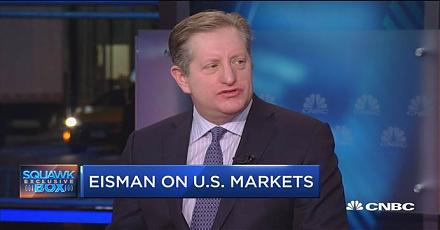

2017-11-27 07:39:00 Mon ET
stock market gold oil stock return s&p 500 asset market stabilization asset price fluctuations stocks bonds currencies commodities funds term spreads credit spreads fair value spreads asset investments
Is it anti-competitive and illegal for passive indexers and mutual funds to place large stock bets in specific industries with high market concentration? Harvard law professor Einer Elhauge suggests that it is illegal for a passive institutional investor to buy-and-hold large equity stakes in a less competitive industry with high concentration, such as the U.S. airlines industry with 4 or fewer key players. In contrast, passive indexers would be safe from antitrust concerns if most other institutional investors stop buying multiple public companies in a specific sector with high market concentration.
The basic rationale relates to the fact that if institutional investors such as index funds and mutual funds hold shares of multiple companies in a specific industry, these oligopolistic firms would tend to compete less vigorously with one another. When senior executives make business decisions in the best interests of their institutional investors, this logic suggests less fierce product market competition and greater price discrimination for consumers in addition to the private benefits of portfolio diversification. The net result would be more stable share prices and more favorable rents and returns to these passive indexers and mutual funds.
Although key critics may disagree with this novel thesis, it is quite controversial to judge whether it is legal for institutional investors to retain major equity stakes in oligopolistic firms in a given industry with high market concentration.
If any of our AYA Analytica financial health memos (FHM), blog posts, ebooks, newsletters, and notifications etc, or any other form of online content curation, involves potential copyright concerns, please feel free to contact us at service@ayafintech.network so that we can remove relevant content in response to any such request within a reasonable time frame.
2026-04-30 08:28:00 Thursday ET

In the current global market for better biotech advances, medical innovations, and healthcare services, the new integration of artificial intelligence (AI)
2018-11-23 09:39:00 Friday ET

Former White House chief economic advisor Gary Cohn points out that there is no instant cure for the Sino-U.S. trade dilemma. After the U.S. midterm electio
2023-08-31 10:22:00 Thursday ET

Government intervention remains a major influence over global trade, finance, and technology. Nowadays, many governments tend to eschew common ownership
2017-04-01 06:40:00 Saturday ET

With the current interest rate hike, large banks and insurance companies are likely to benefit from higher equity risk premiums and interest rate spreads.
2023-07-28 11:28:00 Friday ET

Lucian Bebchuk and Jesse Fried critique that executive pay often cannot help explain the stock return and operational performance of most U.S. public corpor
2019-04-03 11:35:00 Wednesday ET

A Florida fintech group Fidelity Information Services initiates the largest $43 billion acquisition of the e-commerce payments processor Worldpay. Fidelity